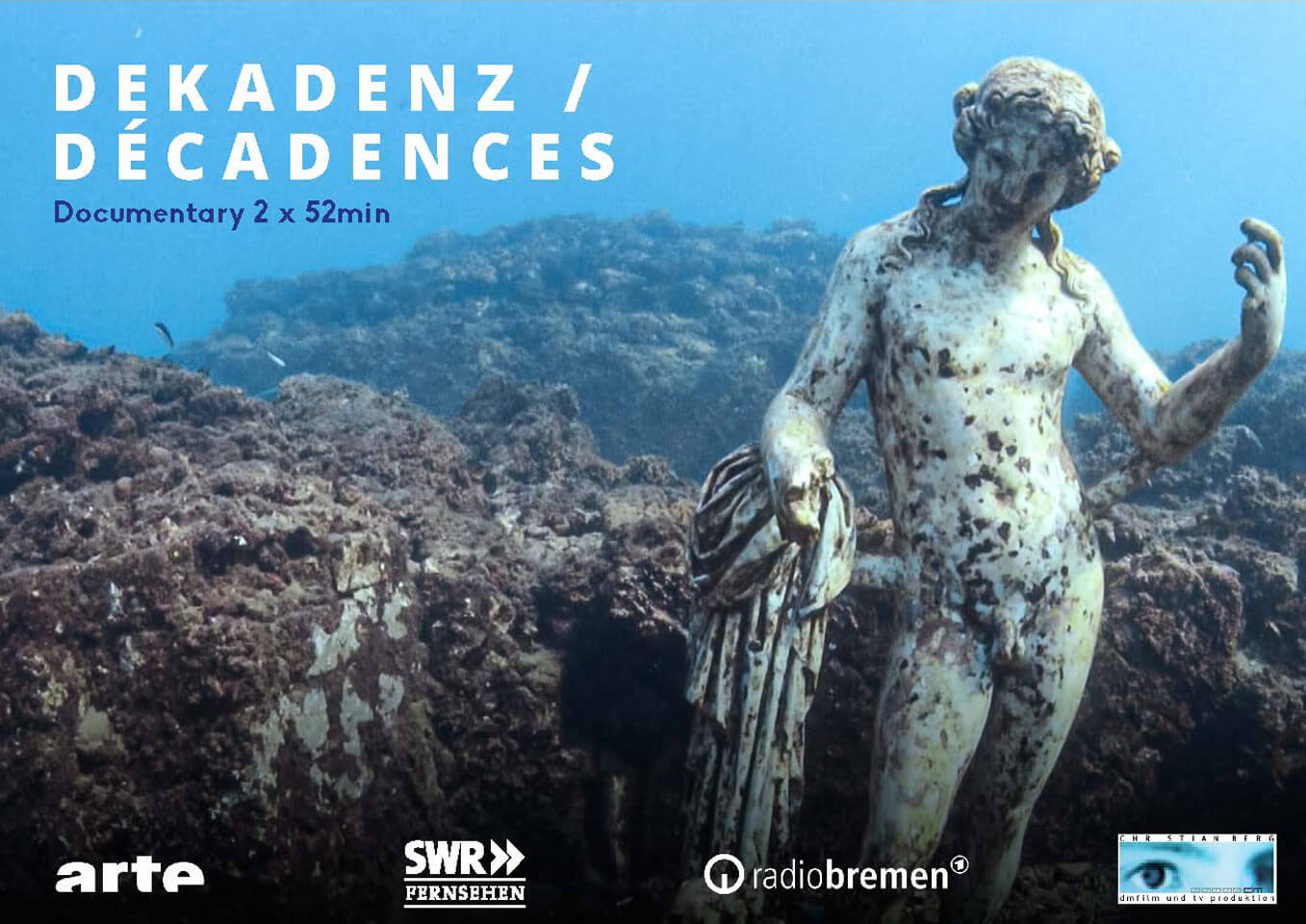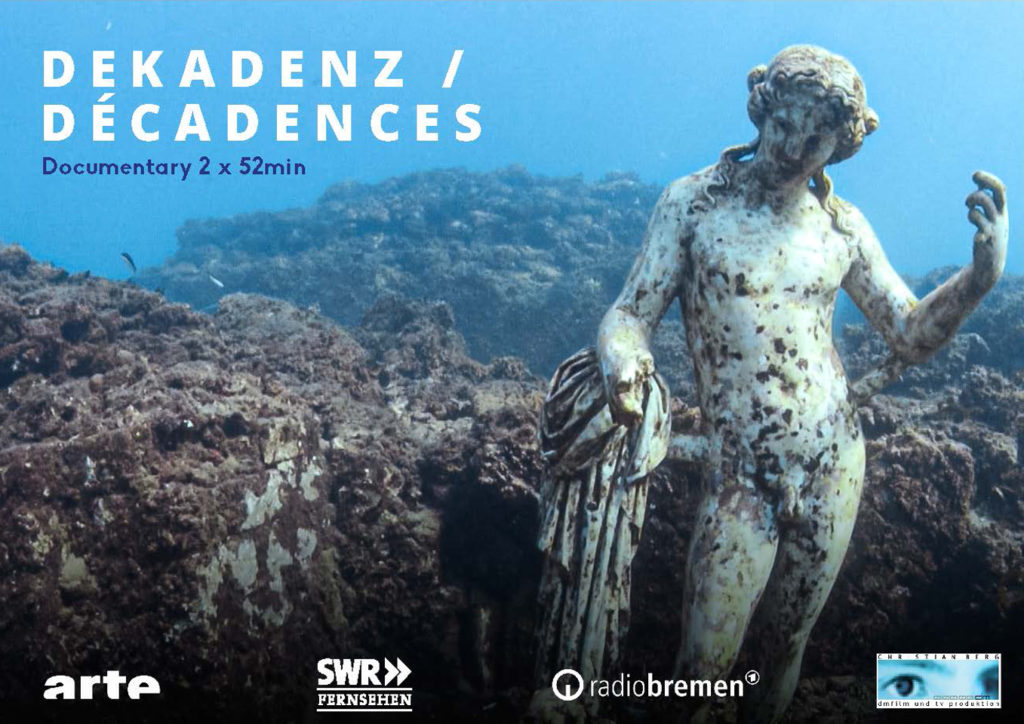

Documentary 2x53min, Radio Bremen, SWR, ARTE
Premiere: Staatliche Museen zu Berlin, 2020
Initial Broadcast on ARTE in 2020
Part 1: The Longing for Lust and Decay
First the orgies, then decline and fall: Decadence is the beginning of the end for civilizations and cultural epochs, or so it's said. But the dissolute life of the rich and privileged is just one side of the coin. Decadence and decline have been a provocative aspect of literature and the visual arts for centuries in their aesthetic contrariness and ironic taboo-transgression.
This two-part work commences in the world of the ancient Romans at their favorite thermal spa of Baia at the Gulf of Sorrento, recalling their revelry and lechery, and follows the myth of the collapse of cultures through the artistic era of Décadence and Fin de Siècle up to our present day. In the process, the film discovers decadence as a new battle-cry in the culture wars.
It encounters cultural historians, philosophers, theologians and sociologists such as Jürgen Wertheimer, Michaël Fœssel, Wolf Eiermann and diving instructor Cristina Canoro, who takes the viewer both to the Roman spa of Baia and also to Naples, the city of decline and fall. And it accompanies new decadents, such as the currently celebrated, Vienna-based cabaret artist Lisa Eckhart, in deeds of provocation and dandyism.
Part 2: The Fight against Decline
Decadence is also the beginning of the end, where social comportment becomes egomania and ethical values no longer have any significance. Part 2 follows photographer Vincent Jarousseau to Denain in northern France and depicts the anger of the people there at the Paris elite, who they feel abandoned and forgot them decades back. New climate movements, like Extinction Rebellion, also charge the global elite with decadent behavior, particularly the energy multinationals who are prepared to destroy our world for profit and accept extinction as collateral damage.
For Cardinal Reinhard Marx, leading representative of the Catholic Church in Germany, it's the hunger for power and the egoistic mores of priests and theologians, as well as the instrumentalization of religions for political purposes, that are the cause of the decadent decline of the Church.
The films also depicts an increasingly radical moralism coming from the very center of the Western world. Nourished by contemporary gloom-and-doom, even the liberal mainstream seems no longer willing to accommodate moral extravagances and dark geniuses such as the 19th century's Oscar Wilde, Charles Baudelaire or Egon Schiele. Furthermore, trouble is brewing from a new negative current of political decadence: populists, right-wing extremists in Germany and France, and neo-fascists in Italy, decry Western lifestyle and democracy as corrupt and, by so doing, summon their downfall.
Wilfried Hauke
Ralf F. Gemmecke
Stephan Haase
George Kochbeck
Hinnerk Jensen
Christian Berg
Mechtild Lehning RB, Bernd Seidl SWR, Ulla Hocker ARTE Deutschland, Suzanne Biermann ARTE G.E.I.E.
dmfilm und tv produktion
We are making creative documentaries and series for television and cinema.
© IDA Film & TV Produktion GmbH | Created with ❤ by Joel Hausting.